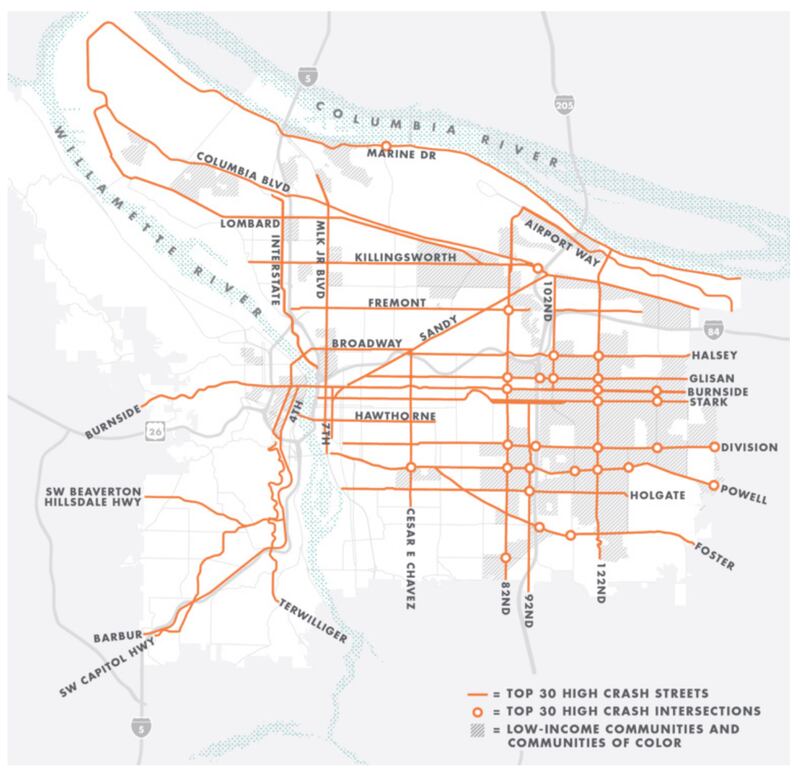The city of Portland will begin removing homeless campers along the city’s roadways as soon as this week.
Mayor Ted Wheeler announced at a Friday afternoon press conference an emergency order, effective this afternoon, that bans camping alongside the city’s “high-crash corridors,” a network of the city’s most dangerous streets that total 8% of the city’s street matrix. The order went into effect immediately.
The city’s Impact Reduction Program, which is responsible for sweeping homeless camps, will perform the work. Wheeler says there will be “no path to return” after campers are moved—though there will also be no penalties or citations for those who do move back.
“We can no longer justify allowing our most vulnerable community members to be exposed to the dangers of camping along freeways and high crash corridors,” Wheeler said at the press conference. “What we find is that for the most part, when asked to leave, people will move.” (After homeless camps are swept, people often return within days to their prior camping spot.)
But unlike other camps, Wheeler says the emergency order allows the city to swiftly remove campers who move back, without having to go through the standard submission process via a city website portal.

The mayor said the order is just the first in a “series of mayoral actions I plan to take to speed the city’s recovery on a number of important issues.” This afternoon, the mayor and Commissioner Dan Ryan released a joint statement announcing a rule that bans camping within 150 feet of each of the city’s planned safe rest villages.
Earlier Friday, the Portland Bureau of Transportation told WW it had not been briefed on the order before news outlets reported it on Thursday. The Oregon Department of Transportation said it’s been in discussion with the mayor’s office about the order for several weeks.
Today, Wheeler said: “The other council offices were certainly aware of the fact that I was looking at an executive order, that I was deeply concerned about these particular areas. But we didn’t actually finalize the order until the last couple of days.”
Commissioner Jo Ann Hardesty’s office says she and her staffers were not aware of the order before WW reached out early this week asking about the potential executive action.
Earlier Friday, 22 transportation and housing advocacy groups sent a letter to the mayor, decrying the ban. They urged instead infrastructure action to bring down traffic fatalities, including lowering speed limits and increasing visibility at major intersections.
This article was published with support from the Jackson Foundation, whose mission is: “To promote the welfare of the public of the City of Portland or the State of Oregon, or both.”
